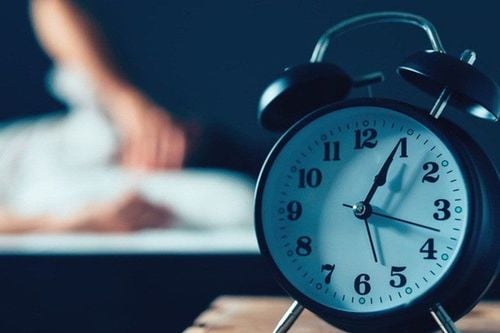This is an automatically translated article.
Sleep apnea is considered one of the serious sleep disorders that can occur during sleep. There are many causes of wheezing during sleep, causing the patient's breathing to stop continuously during this time.
1. Shortness of breath while sleeping
In clinical practice, there are many types of sleep apnea, the most common of which is sleep apnea syndrome. This condition occurs because the muscles in the throat area do not stop relaxing, blocking the patient's airway during sleep. In addition, this condition is also clinically manifested by a symptom that is snoring during sleep.
Some suspicious symptoms of obstructive sleep apnea include:
Too sleepy during the day Snoring loudly When waking up with a dry mouth, sore throat Pain, headache in the morning, difficulty concentrating, Mood swings such as: Irritability, anger for no reason High blood pressure Night sweats Reduced sex drive.
2. Causes of difficulty breathing while sleeping
Wheezing during sleep, or sleep apnea, is caused by a sudden blockage of the airways, usually when the muscles at the back of the throat relax too much to return to normal. These muscle organizations include: The back of the palate, the triangular piece of tissue that hangs on the soft palate, the tongue. These muscles relax too much, narrowing the patient's airway, making inhalation and exhalation shorter or longer than the normal physiological time. The serious consequence is that the amount of oxygen exchanged between the alveoli and the lumen will decrease, causing blood to the tissues from there to also decrease, and the accumulation of Carbon Dioxide will also take place at this time.
Thở khò khè khi ngủ là dấu hiệu của của bệnh lý
Patient may wake with dyspnea, which corrects itself rapidly, in about 1 or 2 deep breaths. At this time, the patient may make a snort, choke, wheeze, or gasp sound. This pattern can repeat 5 to 30 times or last more than 1 hour or even all night.
Disruptions make the process of entering deep sleep and the peaceful state of sleep impaired, so when the patient wakes up, he often feels drowsy. Many patients with obstructive sleep apnea may not realize that their sleep has been disrupted and, on the contrary, may assume they slept well all night.
3. Conclusion
Sleep apnea is a condition of breathing interruption during sleep, encountered a lot in clinical today and can happen to many different subjects. Therefore, as soon as there are abnormal signs, the patient should consult a doctor to find a solution to prevent this situation from continuing, affecting the quality of sleep as well as the quality of life of the patient. patient.
Please dial HOTLINE for more information or register for an appointment HERE. Download MyVinmec app to make appointments faster and to manage your bookings easily.
References: Mayoclinic.org













